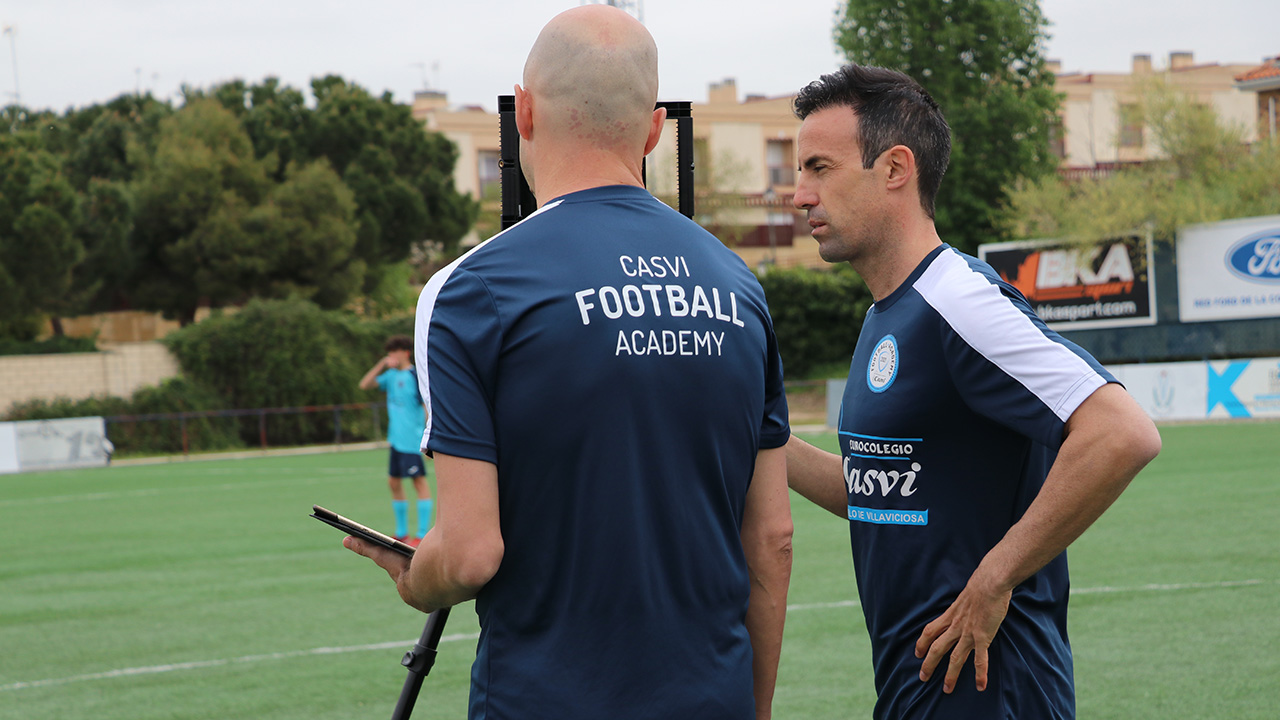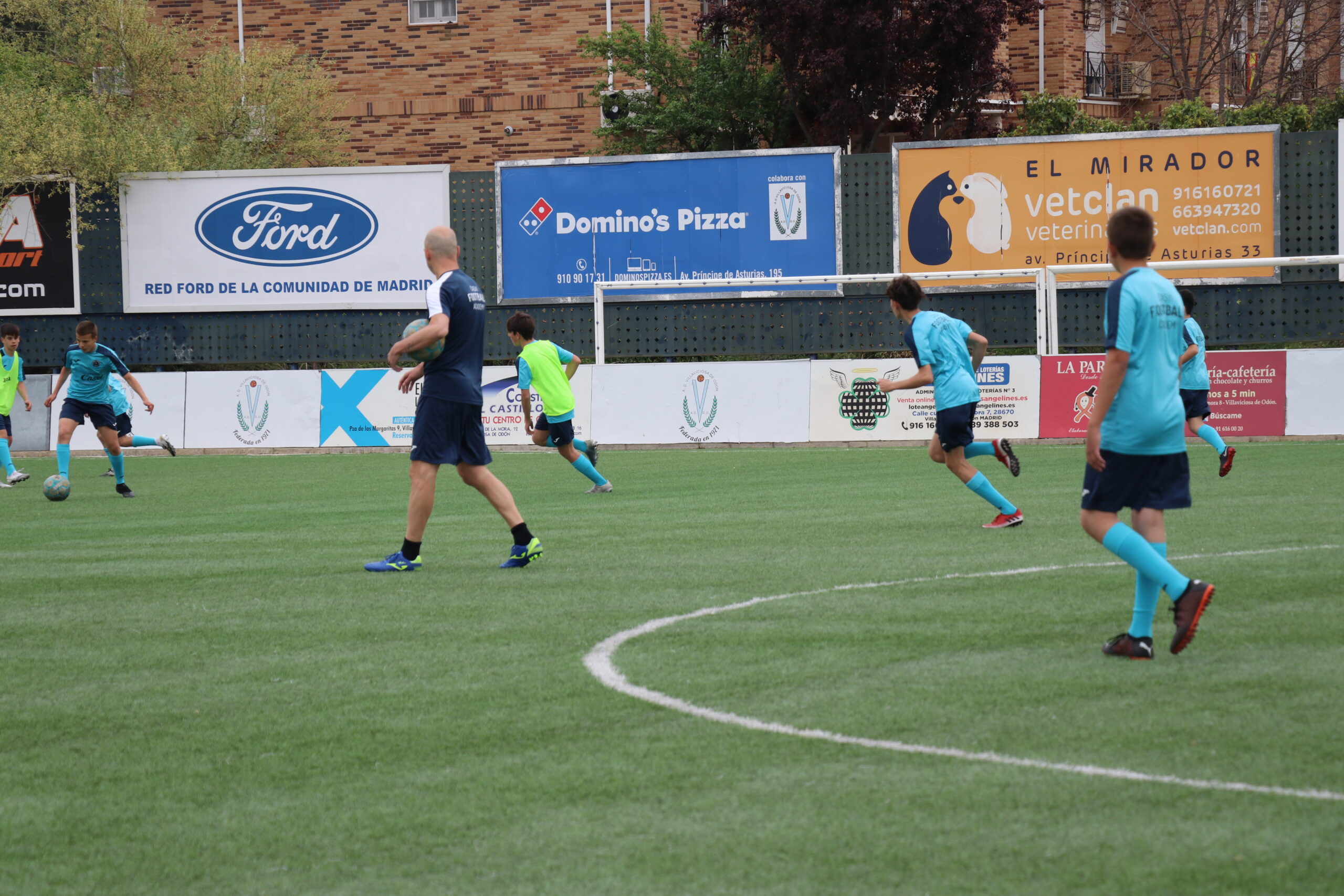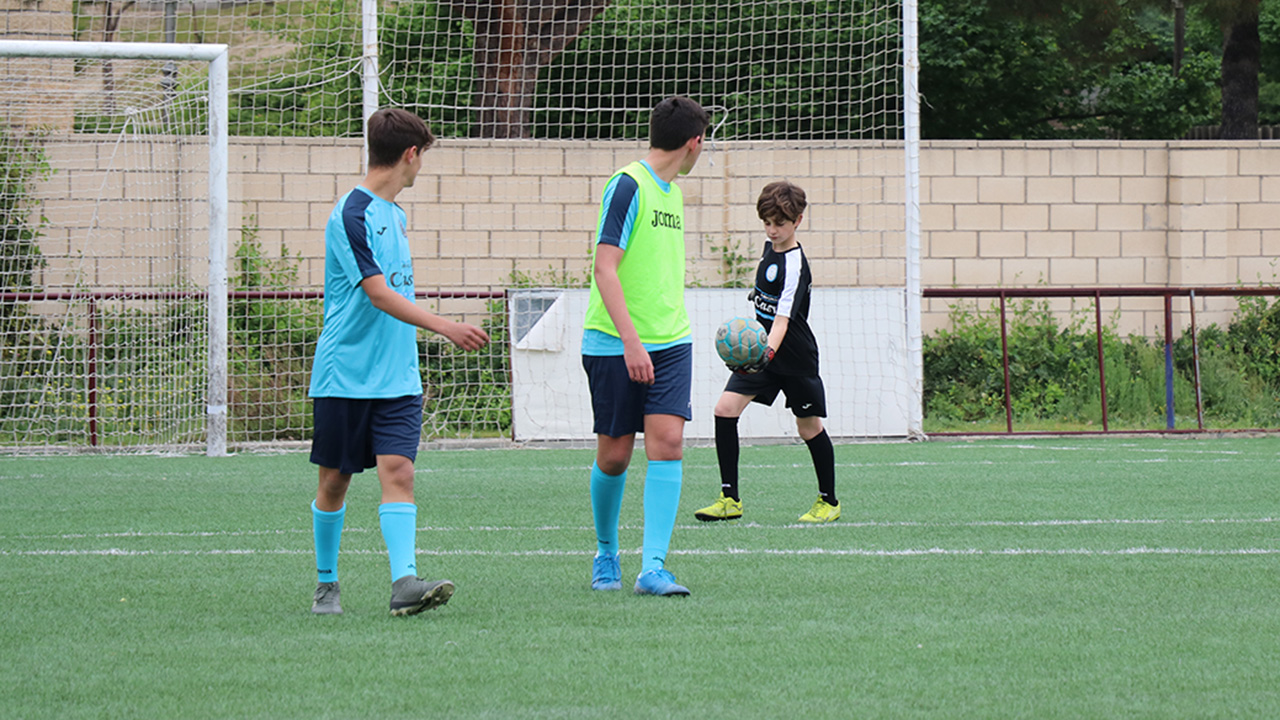

Nutrition for the best performance of a professional footballer
In the demanding world of professional football, performance on the pitch depends not only on the talent and technical ability of the players, but also on their physical and mental fitness. And one of the cornerstones of optimal performance is proper and well-planned nutrition.
Professional footballers subject their bodies to intense training, frequent competitions and demanding physical demands. To excel in this highly competitive environment, it is essential that players provide their bodies with the nutrients necessary to function efficiently and to promote muscle recovery and regeneration. Aware of this reality, professional players, teams and football academies alike are increasingly committed to implementing specialised nutrition and feeding programmes.
In the following, we will explore in detail the importance of proper nutrition for the performance of a professional football player. We will look at essential nutrients and their impact on key aspects such as stamina, strength, recovery and emotional well-being of football players. In addition, we will examine how football teams and academies, such as the Casvi Football Academy, have become leaders in implementing advanced nutritional programmes to maximise the potential of their players.


Nutrition as a key factor in sports performance
Nutrition plays a fundamental role in the performance of a professional footballer. A proper diet provides the necessary nutrients to improve endurance, muscle strength and recovery, allowing for better performance on the field of play. A footballer’s diet should be balanced, varied and adapted to the individual needs of each athlete.
Experts have confirmed that a balanced and nutritious diet can make the difference between mediocre performance and exceptional performance. A diet that includes carbohydrates, protein, healthy fats, vitamins and minerals. In doing so, you will be providing your body with the nutrients it needs to optimise performance, speed recovery and achieve your sporting goals.
Nutrition should not be taken lightly by footballers. Every meal and every bite are opportunities to nourish and strengthen your body, as well as improve your performance. By combining proper nutrition with proper training, footballers have a greater chance of achieving success in their sporting career.


Essential nutrients for a professional football player
A professional footballer requires an adequate intake of nutrients to meet the physical demands of the sport.
- Carbohydrates are the primary source of energy for football players. These nutrients provide the fuel needed to maintain optimal performance during 90 minutes of play. Complex carbohydrates, such as those found in whole grains, pasta, rice and wholemeal bread, release sustained energy, which helps prevent muscle fatigue.
- In addition to carbohydrates, protein is essential for football players as it aids in muscle repair and building. Muscles are under constant stress during play, so it is essential to consume sufficient protein to promote proper recovery. Lean protein sources, such as poultry, fish, eggs, legumes and low-fat dairy products, are excellent choices.
- Healthy fats also play an important role in a footballer’s diet. They provide additional energy, aid in the absorption of fat-soluble vitamins and have anti-inflammatory effects. Omega-3 fatty acids, found in fatty fish such as salmon and walnuts, are especially beneficial for cardiovascular health and brain function.
- Adequate hydration is essential for a footballer’s optimal performance. During a match, players lose fluids through sweat and need to replenish them to stay hydrated. Drinking water regularly before, during and after the game is essential to avoid dehydration, which can affect endurance and concentration.
- In addition to these macronutrients, footballers should also pay attention to micronutrients. Vitamins and minerals play a crucial role in overall health and athletic performance. Iron is essential for transporting oxygen to muscles and preventing fatigue, while calcium and vitamin D are important for bone health and injury prevention.


Appropriate meal planning and timing
The world of professional footballers is demanding and every detail counts in order to achieve optimum performance on the pitch. One of the key aspects for footballers is meal planning and proper time management. Strategic nutrition can make all the difference to a footballer’s performance, both in training and in matches.
Firstly, it is essential to establish a regular and consistent meal structure. Professional footballers usually opt for five or six meals a day to ensure a steady flow of energy and nutrients. This involves dividing daily calories into balanced portions distributed throughout the day.
- Breakfast is one of the most important meals for football players, as it provides energy to start the day and kick-start the metabolism. It should include foods rich in complex carbohydrates, such as oatmeal, wholemeal bread or fruit, along with lean protein such as eggs or low-fat dairy.
- The pre-workout or pre-match meal is crucial to ensure optimal performance. It should be consumed 2 to 3 hours before physical activity and consist of a combination of carbohydrates and protein. Some healthy options could be brown rice with grilled chicken or a salad with tuna and quinoa.
- After the workout or match, it is important to recover properly. In this post-exercise meal, a combination of carbohydrates and protein is recommended to aid muscle recovery and replenish glycogen stores. Protein shakes, fruit and yoghurt, or a turkey sandwich on wholemeal bread are excellent choices.
- Dinner should be a balanced meal, but lighter compared to previous meals. It is recommended to include lean proteins such as fish or chicken, along with vegetables and a smaller portion of complex carbohydrates. Avoiding heavy or fatty foods before bedtime is important for good digestion and sleep quality.
Finally, it is important to note that meal planning and scheduling must be complemented by adequate attention to rest and recovery. A good balance between training, nutrition and rest is essential to maximise results on the field.


Hydration and supplements in a professional footballer’s diet
Hydration is essential for sports performance and professional footballers should pay special attention to their fluid intake. During training and matches, the body loses fluids through sweat, which can lead to dehydration and negatively affect performance. Players should make sure to drink water regularly before, during and after physical activities to maintain an optimal level of hydration.
In addition to water, sports drinks can be beneficial for football players as they help to replenish electrolytes lost during intense exercise. These drinks contain minerals such as sodium, potassium and magnesium, which are essential for water balance and proper muscle function. However, it is important to note that sports drinks may also contain added sugars, so it is recommended to read labels and opt for low-calorie versions where possible.
As for dietary supplements, it is important to note that they are not necessary for all footballers and their use should be evaluated and supervised by health professionals. The most common supplements in the diet of professional footballers are protein, creatine and omega-3 supplements.
- Protein supplements, such as protein shakes, are used to aid muscle recovery and new fibre synthesis after training or matches. Protein is essential for muscle repair and growth, and supplements can be useful when protein intake through the regular diet is insufficient.
- Creatine is another popular supplement in football. It helps to increase muscle strength and power, which can be beneficial for explosive movements and sprints on the field. However, it is important to follow dosage recommendations and avoid excessive or prolonged use of creatine.
- Finally, omega-3 supplements, which contain essential fatty acids, are known for their anti-inflammatory properties and cardiovascular health benefits. They can help reduce inflammation after intense exercise and improve muscle recovery.


Importance of proper nutrition at Casvi Football Academy
As we have outlined in this article, nutrition plays a crucial role in the performance and health of professional footballers. The Casvi Football Academy recognises its fundamental importance. As a leading institution in the development of young football talent, the academy understands that proper nutrition is essential to maximise players’ potential and promote their overall wellbeing.
The Casvi Football Academy takes a holistic approach to nutrition for professional footballers, recognising that a balanced and personalised diet can make all the difference. To achieve this, the academy has a team of expert nutritionists who work in partnership with players to develop dietary plans tailored to their individual needs.
The main objective is to provide footballers with a solid nutritional foundation that allows them to maintain high energy levels, accelerate their recovery after training and matches, and optimise their overall performance.
In addition to designing personalised meal plans, the Casvi Football Academy educates footballers on the importance of making healthy eating choices. Players receive information and guidance on how to make nutritious choices when they are away from the academy, such as during travel or competitions. They are taught how to make informed choices when selecting food in restaurants or when shopping for food.
The Casvi Football Academy also emphasises proper hydration as an integral part of a professional footballer’s diet.
The academy recognises that healthy eating not only benefits performance on the field, but also the overall health and well-being of footballers. By encouraging proper eating habits from an early age, a solid foundation is laid for a long-term healthy lifestyle.



